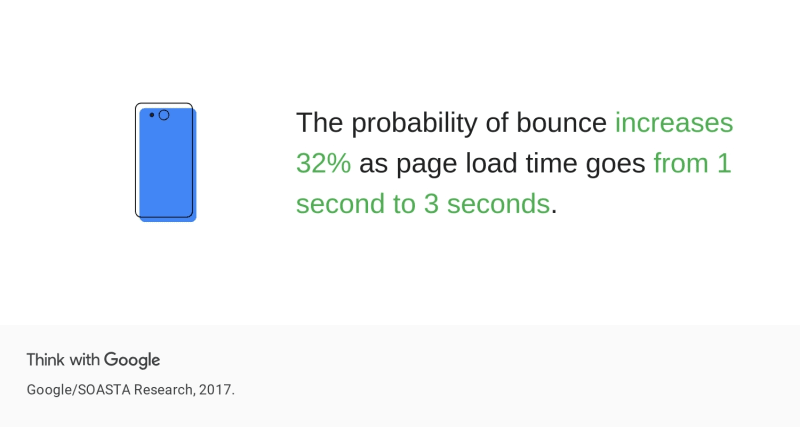Think like a user!! Let’s say you land on a website that takes forever to load. Is it gives you a good experience? Or will it test your patience? Before diving into how website speed affects conversion rate, let’s understand what website speed is.
What is Website Speed?
Website speed/page speed is the time your webpage takes to complete request from the browser and render content in the web browser. Page Speed Insights, GTmetrix, and Pingdom Tools help measure page speed.
Impact of Website Speed on Professional Websites
Many factors impact website speed. The most common factors are Server location, content on website, device, heavy CSS/JS, plugins, and third-party content.
Professional websites with poor quality CSS/JS have faced many issues improving site speed. For WordPress websites, a careful selection of light plugins is also important. Because sometimes non-compatible plugins may break your website.
Businesses that rely on websites can largely be affected due to website speed. According to Google’s survey, the probability of bounce increases 32% as page load time goes from 1 second to 3 seconds.

Moreover, a slow website also impacts users’ willingness to fill out the contact form. Hence, it reduces the conversion rate and leaves a nasty brand impression.
Impact of Website Speed on eCommerce Websites
Most eCommerce websites that are not optimised, face this issue. Page speed impacts eCommerce businesses more than professional websites. That’s because the revenue of online retailers is largely dependent on their websites.
Slow website increases bounce rate, cart abandon rate, and payment processing rejection. eCommerce websites with lower speed have bad a user experience as well. Is it not a good deal that you get pre-optimised eCommerce website? Call us today at 1300 350 534.
Google also prefers websites with good loading speed and interactivity. Ranking in search engine increase if you have a decent and high-speed website. It aids in improving relevant traffic and conversions.
According to Crazyegg, a 1-second delay in loading speed results in a 7% loss in conversions. Let’s say you are getting 1000 conversions daily. If you improve 1 second in page loading time, you will get 70 more conversions each day. Hence, loading speed is a crucial factor for getting a good ROI.
How to Improve Website Loading Speed?
Loading speed impacts both professional websites and eCommerce stores. Hence, it is significant to improve loading speed. Depending on your website technology, there are many ways you can improve loading speed. Some of them are as below:
1) Minimise HTTP Redirects: It is used to redirect one URL to the final/destination URL. Having multiple redirections increases server requests. Server takes time to serve each request. The more HTTP redirects your website, the more time it will take. You can minimise it on the top-level domain.
2) Browser Caching: To efficiently utilise of server resources, browser caching is necessary. It stores a version of your webpage that consists of images, content, CSS, and JavaScript. This reduces the necessity of requesting server each time when user visits. There are many plugins for WordPress websites, such as Jetpack and Hummingbird.
3) Minify Website’s HTML, CSS, and JS: Unnecessary lines, commas, and tags increase load time and utilise more resources. Minifying files helps in removing redundant lines of code. Depending upon CMS, there are many plugins available for it.
4) Optimise Images, GIFs, and Videos: Non-text based content heavily impacts page size. Many tools are available to optimise images, GIFs, and videos for a better user experience. You should always compress your images before uploading them to a website. This will make it easier for browsers to load them faster, and it will also reduce the size of the image file on your server, which means less time spent downloading them when someone visits your site.
5) Choose Good Hosting/Server: Another way to improve the loading speed of your website is to find a good hosting company. The hosting service is the backbone of any website. It is the server that stores and delivers your website to the world. The better your hosting service, the faster your site will load.
Summing Up
Website speed is super important when receiving thousands of hits or conversions daily. Even a one-second improvement in speed can drive a good amount of traffic. I hope you have got a thorough understanding of impact page speed and how to improve it.



Top comments (2)
These points are so valid the speed a website loads is incredibly important. If I see a website struggling to load or giving me some 404 errors then I lose interest quick unless it's one of those big popular websites that you use daily.
Thank you Andrew for your comment!